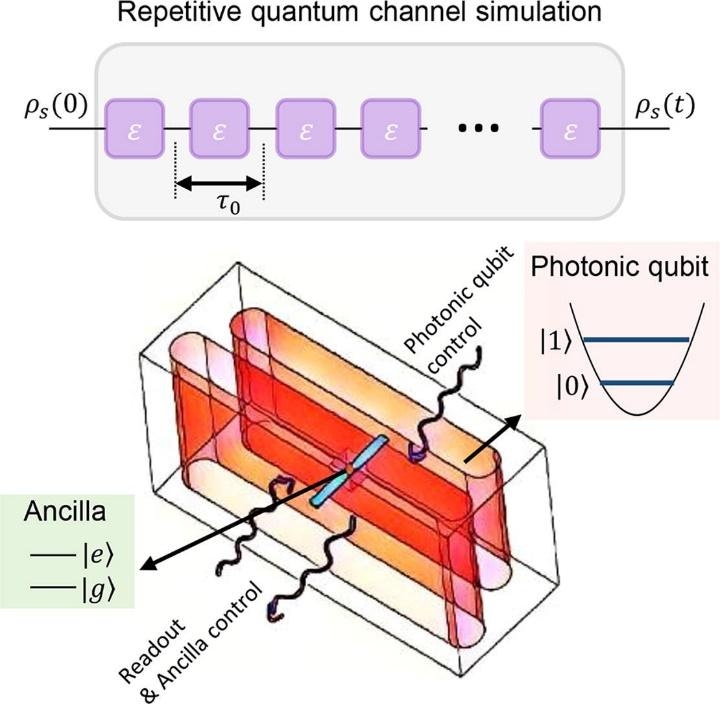Jan 14 2019
The foundation for quantum mechanical and quantum information theory has been laid by the open quantum system and its control. Since a practical quantum system interacts with the environment, its evolution should be defined by a quantum channel, rather than a unitary evolution for a closed quantum system.
 The schematic of the quantum channel simulation based on superconducting quantum system. (Image credit: Science China Press)
The schematic of the quantum channel simulation based on superconducting quantum system. (Image credit: Science China Press)
Apart from providing in-depth insights into the quantum open system, the experimental analyses of the quantum channel will also improve enhance the ability to control the evolution of a quantum system, which is advantageous for the studies on quantum information and quantum computation. Hence, it is of utmost importance to realize arbitrary operation on a quantum bit—the simulation of an arbitrary quantum channel.
Recently, a research group headed by Luyan Sun from Tsinghua University collaborated with Chang-Ling Zou from University of Science and Technology of China and achieved the arbitrary quantum channel simulation for a single qubit in a superconducting quantum circuit, and achieved the arbitrary operation on a quantum bit. The experiments are premised on a coupled superconducting transmon qubit and a three-dimensional microwave cavity, where the arbitrary repetitive quantum channel simulation on the photonic qubit is achieved with the cavity acting as the target qubit and the transmon acting as an ancillary qubit.
A noteworthy fact is that they created an innovative experimental approach to achieve the open quantum system control, using just minimal quantum resources of a single ancillary qubit and the real-time quantum feedback technology. It is also possible to generalize such an approach to a higher dimension to achieve arbitrary qudit channel simulation, which still needs only single ancillary qubit.
The demonstrated quantum channel simulation has the ability to deterministically simulate the evolution of the quantum bit in an arbitrary physical environment and the created arbitrary quantum mixed state would have a vital role to play in the future applications, such as quantum computation and quantum simulation.
This study is supported by the National Key Research and Development Program of China (2017YFA0304303), National Natural Science Foundation of China (11474177), and Anhui Initiative in Quantum Information Technologies (AHY130000).